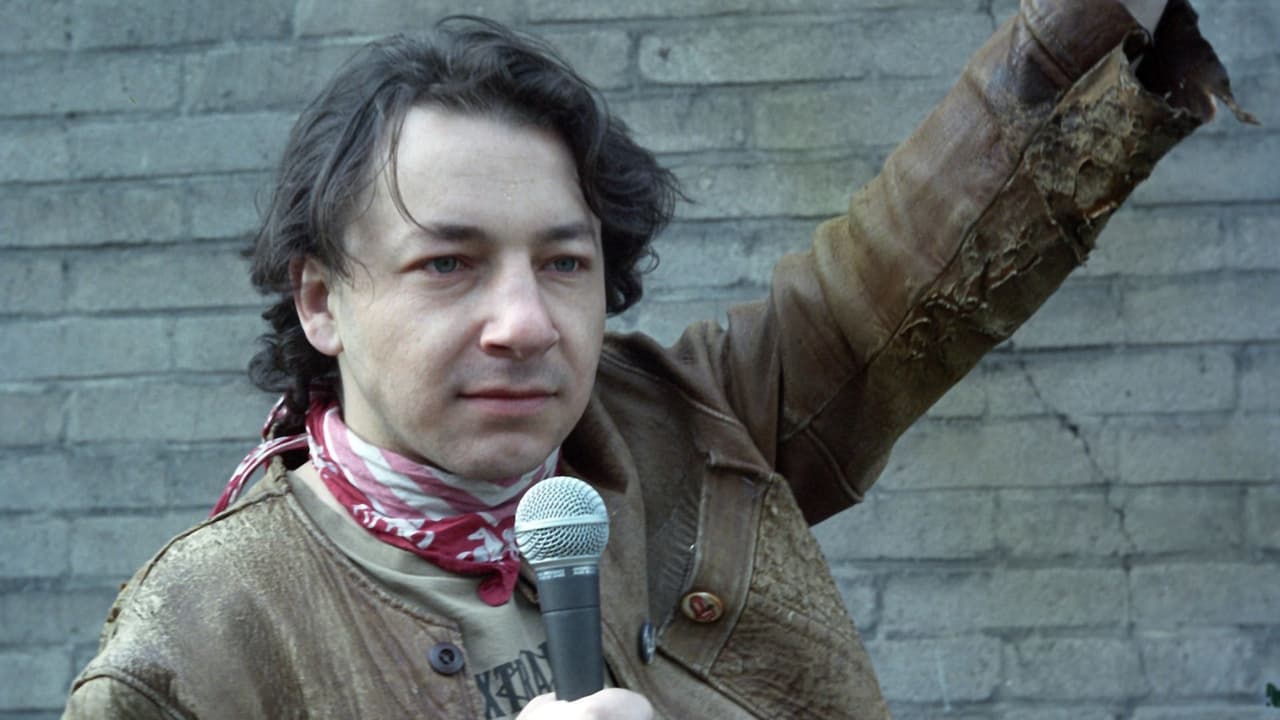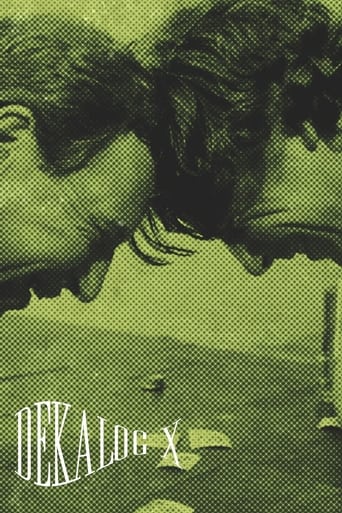Curapedi
I cannot think of one single thing that I would change about this film. The acting is incomparable, the directing deft, and the writing poignantly brilliant.
Motompa
Go in cold, and you're likely to emerge with your blood boiling. This has to be seen to be believed.
mraculeated
The biggest problem with this movie is it’s a little better than you think it might be, which somehow makes it worse. As in, it takes itself a bit too seriously, which makes most of the movie feel kind of dull.
Nayan Gough
A great movie, one of the best of this year. There was a bit of confusion at one point in the plot, but nothing serious.
FilmCriticLalitRao
Watching this short film, I am sure that many would remark that Polish director Kieslowski has chosen a facetious manner of ending "Dekalog" series. Those who feel that Polish films are a serious affair will be happy to learn that in this film there are no signs of usual Polish /East European gloominess which is very much prevalent in other films by Krzysztof Kieslowski. It is one of the most humorous of all his 10 short films as viewers get to see a simple story of how two brothers learn through a series of bittersweet experiences that there is no point in coveting other people's goods."Dekalog 10:Thou Shalt Not Covet Thy Neighbour's Goods" is a perfect example of a comedy film which is different from other comedy films à la Hollywood. It is a comedy film made in Poland and bears no resemblance with other slapstick comedies made by masters like Buster Keaton and Charles Chaplin. Dekalog 10 is unique in many ways as we see things from a new perspective. One of the characters is a lead singer for a Polish Rock band called "City Death". Watching him perform a spirited song with sprightly moves, it can be surmised that it is not an individual musician who is crazy about personal liberty but an entire nation is displaying restless energy for freedom. It is not so often that we come across a film in which villains do not look like villains. Dekalog 10 features a minor plot involving villains and shady deals but all credit goes to remarkable Kieslowski who has scripted his film in such a manner that it is difficult to ascertain who is cheating whom ? Two great actors of Polish cinema Jerzy Stuhr and Zbigniew Zamachowski teach us the greatest lesson of humanity :It is wise not to deal in a thing about which one is not sure.
Aquilant
The end of one of the greatest series of all time. A tragicomic and paradoxical story about the desire for possession in-itself, involving the quiet existence of two brothers moved to behave in a foolish way against the will of their father by the hidden springs of human actions.Based on a chain of events due to a singular inheritance, "Dekalog 10" (Thou shalt not covet thy neighbour's goods) is quite different from the other episodes of the series, but its high level of quality is a warranty as to the accuracy of the story. From a cinematic point of view the style is both ironic and grotesque and introduces a rich vein of frisky sense of humor. Kieslowski makes us perceive the necessity of a sigh of relief at the end of his human saga. He likes probably to say good-bye to us with a slight smile hovered on his lips, figuratively speaking. And even if at first sight, judging by appearances, he may seem eager to take a few moments to pause maybe in order to rid himself of all the stress stored in his body after nine destabilizing episodes, (look for instance at the impersonal photographic quality of his sequences, resulting in a less troubled atmosphere) the structure of the story is more complex than one might think. After a more careful probing of the key elements in "Dekalog 10", we can find some emblematic metaphors about the desire for possession merely for the purpose of possession itself. A mystifying anchorage during these difficult times. In the long run such eagerness can spread over the life of the soul like a catching disease, in such a way as to compel the human being to withdraw into himself. But Kieslowski doesn't like playing the moralist: he wants to be a witness, he tries so hard to do a careful investigation about unpredictable human events but doesn't claim to act the Supreme Judge as a substitute for the divine authority.What's left at the end of the whole Dekalog series? The consciousness of one of the higher goals of human talent together with the sensation of an epochal masterpiece of vast proportions. A journey through the complex structure of the human psyche in order to check its reaction mechanisms and reveal every malfunctions in a strict impersonal way. Once again we may be able to draw moral conclusions from what is depicted here: the littleness of man's mind in comparison with the unpredictability of future events.
simuland
A poor man's Treasure of the Sierra Madre. A black comedy about two hapless brothers who inherit Poland's most valuable stamp collection from a father who sacrificed everything, lived a monastic life, to amass it. (The father, stamps in hand, makes a cameo appearance in VIII.) They, too, are drawn into the erudite greed of philately, ownership for the sake of ownership, to a bad end. Everything rests on the puzzle of the plot, on who can outsmart whom, and how. But the details are sketchy, not thought all the way through, thus, again, resulting in a problem of credibility; the punch line, by the time it arrives, lacks punch, isn't, say, the same as seeing all one's gold dust blow away on the wind. But, of course, there's always color coding to keep one occupied.
Lanaudi
I have seen all the Decalog many years ago but I remember it with emotion. All the pieces of this chef d'oeuvre are extraordinary and my favorite movies. But I like this one for the laughter that concluded it...

